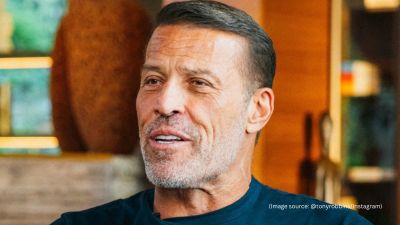These macabre rhythms
The gruesome terrorist tragedy that struck a school in Beslan in Russia provides the most recent addition to a bloody backdrop to review th...

The gruesome terrorist tragedy that struck a school in Beslan in Russia provides the most recent addition to a bloody backdrop to review the import of 9/11. Its third anniversary will be observed on Saturday. In an unintended but ironic twist to the vagaries of history, Russian President Putin has just declared that Russia is at war after Beslan, while only a few days earlier US President George Bush in the NBC Today programme in reply to a question about the war against terrorism conceded that 8216;8216;I don8217;t think you can win it. But I think you can create conditions so that those who use terror as a tool are less acceptable in parts of the world.8217;8217;
Given the compulsions of the US presidential elections in November, Bush was quick to retract his NBC statement adding that, luckily, he was inarticulate. Reiterating that what he meant was something else, he asserted that the war against terrorism would be waged relentlessly and that it would be won with him at the helm of the US, and by extension, global affairs. In short, both the former superpowers of Cold War vintage now have presidents of a democratic dispensation who have cast themselves in the mould of the steely, indefatigable Commander-in-Chief in this phase of the war against terrorism 8212; the big 8216;T8217; that entered the global security lexicon even as the twin towers collapsed on millions of television screens three years ago.
The import of 9/11 is complex, contradictory and dynamic. Many strands are tangible and linear while others are intangible. Such non-linear perception will be comprehended with the passage of time for we are still too close to it. However, some inferences and paradigmatic shifts are discernible.
At the macro-strategic level, the state as an entity 8212; the US at one end of the spectrum and smaller Nepal at the other, the latter inadvertently becoming the victim of 9/118217;s fall-out when Nepalese hostages were abducted and killed in Iraq 8212; has now become more insecure. Uncertainty grips those responsible for state and societal security.
Thus the first big transformation that has taken place is in the mutation of the state DNA apropos the concept of security. The long cycle of history that has been telescoped in recent decades with the advent of technological modernity is witnessing a transformation in the way in which states see themselves and their interpretation and prioritisation of security. The colonial period of modern history that began with Vasco da Gama in 1498 and ended notionally with the end of World War II and Hiroshima saw the emergence of the classical nation-state. In this universe, states were occupied in preserving and defending their territorial integrity and national sovereignty. But this was also the beginning of the 46 year long phase of the Cold War. Nation-states were quickly divided into blocks identified by their co-relation to the undercurrents of bi-polarity.
The nation-state was supreme in the security discourse, though ironically the seeds of the emergence of the non-state actor and religious zealotry were sown in the Afghan war of the early 1980s by the erstwhile superpowers. The nuclear weapon lashed to a frighteningly accurate missile became the symbol of major power contestation but the winds of change were astutely recognised by presidents Reagan and Gorbachev. The Cold War ended in the most unlikely manner notwithstanding the irrational doctrinal commitment to mutually assured destruction. The abiding image is of a defiant Boris Yeltsin standing atop a Soviet tank.
The post-Cold War was brief. It lasted from 1991 to 2001 September 11. But the euphoria it generated was intense. History, it was averred, had ended, for there was little left to contest. The free market and normative liberal values were deified at the twin altars of consumption and profit cocooned in the IT bubble. The market-state was born and for a heady moment, Bill Gates became more important than Bill Clinton. The centrality and efficacy of the state in the production and distribution of the concept of security was questioned. Venerable pundits heralded the onset of a golden period in global history when finally Cold War swords would be turned to bio-tech ploughshares.
September 11 dramatically and tragically punctured this nascent bubble of euphoria. The world as we knew it would never be the same. In three years what we now witness as part of the mutation of state DNA is the emergence of the besieged nation-state and a bewildered and angry citizenry. Beslan is only the most recent example of what may follow in this trail of violence, bloodshed and anguish. States, more often than not, respond predictably. Military force is invoked, as was the case with the US and now Russia. The spiral will follow the dirge of the Yeatsian gyre.
The 8216;8216;other8217;8217; is demonised in the post 9/11 security discourse. Hence the Muslim becomes suspect in the west and the Chechen now in Russia. Yet as the American death-toll in Iraq crosses the 1,000 mark after 8216;8216;victory8217;8217; was triumphantly declared, and Afghanistan seems more and more likely to slip into disorder, the neat military resolution appears elusive.
In the global system, where states are inevitably jostling in the furtherance of their national interest, one may say that the brief uni-polar moment is now past. The US as the exemplar of the west that had won the Cold War is now besieged by its own anxieties from within and without. The normative values that are embodied in the US constitution now stand trampled or shrunk. The imposing military machine at the command of the Commander-in-Chief appears ineffective. And civil society, alas, is becoming more and more inured to the macabre rhythms of the post 9/11 world, as it surfs from wardrobe dysfunction to the Olympics, occasionally stopping at Beslan.
The writer is officiating director, Institute for Defence Studies and Analyses, New Delhi. The views expressed here are his own
- 01
- 02
- 03
- 04
- 05































